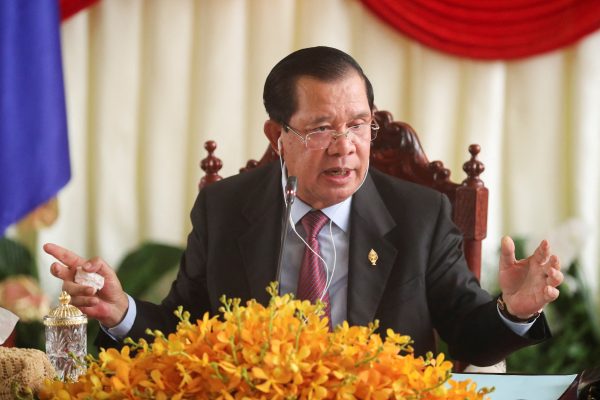Hun Manet, the eldest son of Hun Sen, was eventually elected to the National Assembly for the first time on 23 July 2023. The real surprise came a few days later when Hun Sen set a clear timeframe for his resignation after 38 years in office despite countless utterances of his wishes to remain in power well into the 2030s.
This sets the stage for Manet to transition from being prime minister-designate, a title he received from the Cambodian People’s Party (CPP) in December 2021, to prime minister on 22 August 2023. Hun Sen will become president of the senate and will remain leader of the CPP, retaining significant power.
Most observers have put forward explanations for this smooth transfer of power that highlight the absence of democracy and the rule of law in Cambodia. Many governments quickly put out press releases that condemned the July elections, repeating a refrain heard since the 1990s. Washington was ‘troubled’ by the elections because they ‘were neither free nor fair’. Berlin pointed to the ‘restrictive political environment’ and the absence of ‘multi-party democracy and respect for human rights’.
While some governments remained suspiciously silent, including Australia’s, and others sent congratulations, such as Beijing, most reiterated their displeasure with the electoral process. From this perspective, Manet is in power because there was no other choice. An illegitimate election begets an illegitimate prime minister.
Scholars of Cambodia and authoritarianism have provided more insightful answers. Neil Loughin explained the ‘hereditary succession’ as deriving from a two-fold strategy that was implemented almost perfectly. The first part of the strategy was to systematically dismantle opposition parties and affiliated institutions external to the CPP. Quashing all opposition left few outlets for dissent against Manet’s succession.
The second strategy was to carefully manage any potential opposition to Manet within the CPP. By allowing powerful party members such as Minister of National Defence Tea Banh and Minister of Interior Sar Kheng to pass their own positions to their children, the Hun family has maintained stability by dividing the country’s spoils among the next generation of CPP elites.
Another answer, often unacknowledged in the media, as to why the succession was met with little pushback lies in the CPP’s strategies towards education and youth engagement. A lesson learned after the 2013 election, when opposition parties made unexpected gains on the back of younger voters, was to make the ruling party more appealing to the youth. Hun Sen embraced Facebook to speak to the younger generation of voters, who spend more time looking at their phones than watching television. This was why Meta’s ban was important in 2023.
But the youth strategy extended beyond Facebook. A CPP Youth Working Group, which Manet has headed since June 2020, began promoting Cambodian culture and CPP interests both inside and outside Cambodia. Countless university scholarships were awarded by groups connected to Hun Sen, and many public schools were renamed to honour prominent families of the CPP elite.
Hun Sen’s youngest son, Hun Many, even became the president of the Union of Youth Federations of Cambodia, a supposedly nongovernmental organisation that promotes education and healthcare across the country. Over the past decade, the Cambodian youth have become a target for much of the country’s political largess, effectively linking educational opportunity to the CPP in the minds of young voters.
But for every educational carrot there was a stick. There is evidence that the Cambodian curriculum began to be line-edited by the top echelons of the CPP as early as 2009, removing content deemed dangerous to its interests. More recently, topics such as the colour revolution were introduced into textbooks, aligning Hun Sen’s rhetoric with educational curricula.
The development of critical thinking among Cambodia’s youth was systemically stunted by these efforts just as the opposition was systemically dismantled. Many youths were educated to accept the status quo and to never challenge existing power dynamics. The CPP did everything it could to ensure there would be no repeats of the 2013 election, and it has succeeded.
Controlling education and youth, quelling internal resistance and dismantling any opposition paved the way to Manet’s coronation. Since the effects of these strategies are likely to persist long after the election, it is possible — although certainly not inevitable — that Hun Manet’s reign will go unchallenged for years if not decades to come.
Will Brehm is Associate Professor in Education at the University of Canberra. He is the author of Cambodia for Sale and co-editor of Public Policy Innovation for Human Capital Development, Memory in the Mekong and Education and Power in Contemporary Southeast Asia.

